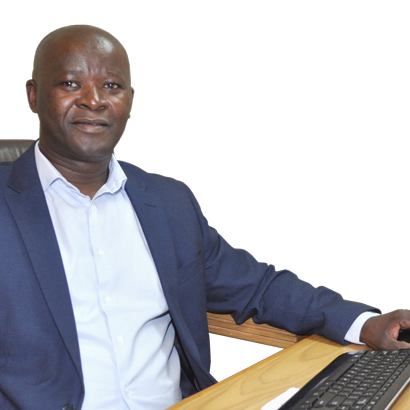Q: What is the purpose of a research chair?
A: The Research Chairs initiative is a national programme that the Department of Science and Technology (DST) and the National Research Foundation (NRF) initiated to promote South African research excellence in our own country and also internationally.
The focus is mostly on issues of national priority and on addressing those issues to improve the lives of the people of South Africa.The programme also aims to assist South Africa to increase its international competitiveness in research.
Another goal is to strengthen and improve the research and innovation capacity of public universities in order to produce high-quality postgraduate students and research and innovation outputs.
Q: Who would typically be appointed as a research chair leader?
A: Research chair leaders are excellent, seasoned and established researchers of stature in their fields of expertise. Most of them are NRF-rated researchers, which means that they are frontrunners in their fields.
There are two levels of research chairs. The leaders of tier 1 chairs are established researchers who have been recognised internationally for their research contributions. They are well published and deliver excellent postgraduate students.
Tier 2 research chair leaders are established researchers with the potential to achieve international recognition for their research contributions in the next five to 10 years.
Q: What are research chairs responsible for?
A: Staff involved with a research chair are primarily responsible for research and postgraduate training. Their research is on issues that government has identified as being of national importance and actively seeks to find solutions to the challenges in their specific fields.
They also advise government on policies and relevant issues.
Q: How many research chairs does the NWU have?
A: The NWU has seven South African Research Chairs Initiative (SARChI) chairs and three industry-based research chairs.
Q: How are research chair leaders appointed?
A: Chair leader positions are advertised. The university then identifies candidates with good academic profiles and submits proposals to the NRF. The candidates undergo a rigorous review process that has national and international credibility.
Q: Do they serve as research chair leaders for a fixed period?
A: Research chair leaders are appointed for five years which is renewable twice. They are funded during this 15-year cycle by the DST/NRF, after which the university has to secure additional funding so that the research chairs can continue their work.
Q: Do research chair leaders collaborate with researchers from other universities or are they primarily responsible for their university-specific research?
A: One of the requirements is that they have to collaborate. They have to share their knowledge with other institutions of higher learning and also share their expertise by using it in communities.
Q: Is there any prestige in being appointed as a research chair leader?
A: It is a great honour. They are part of a select group of esteemed and highly respected researchers. It is recognition from your peers for contributions that are making a real difference in finding solutions to real problems.
The NWU is proud of all our research chairs and the staff involved with them for the ground-breaking work they do.
RESEARCH CHAIRS
help solve real-life problems
The NWU’s internal success model calls for the university’s research and innovation endeavours to have a notable international profile and impact.
A related priority is to provide solutions for real-life problems in our country and the world, and our research chairs are helping to steer us towards realising this ideal. Eish! spoke to Dr Sibo Sowazi, the new director for research support, about research chairs and all that they entail.
The NWU’s research chairs and its leaders:
- DST/NRF Research Chair in Astrophysics and Space Physics (SARChI) - Prof Markus Bottcher, Faculty of Natural and Agricultural Sciences
- DST/NRF Research Chair in Coal Research (SARChI) - Prof John Bunt, Faculty of Engineering
- DST/NRF Research Chair in Biofuels and Other Clean Alternative Fuels (SARChI) - Prof Sanette Marx, Faculty of Engineering
- DST/NRF Research Chair in Nuclear Engineering (SARChI) - Prof Jat du Toit, Faculty of Engineering
- DST/NRF Research Chair in Early Detection and Prevention of Cardiovascular Disease in Africa - Prof Alta Schutte, Faculty of Health Sciences
- DST/NRF SA-NAM Bilateral Research Chair in Astronomy and Astrophysics (SARChI) - Prof S Wagner (Namibia), Faculty of Natural and Agricultural Sciences
- EDTP SETA Research Chair in Early Childhood Education - Prof Rosemarie Wildsmith-Cromarty, Faculty of Education
- ESKOM EPPEI Specialisation Centre for Emission Control - Prof Hein Neomagus and Prof Stuart Piketh, Faculty of Engineering
- World Trade Organisation chair (WTO) - Prof Wilma Viviers, Faculty of Economic and Management Sciences.
- Research Chair in Cities, Law and Environmental Sustainability (CLES) (SARChI) - Prof Anél du Plessis, Faculty of Law.
